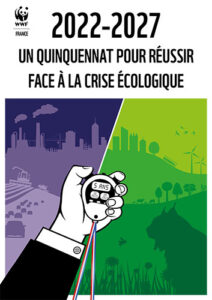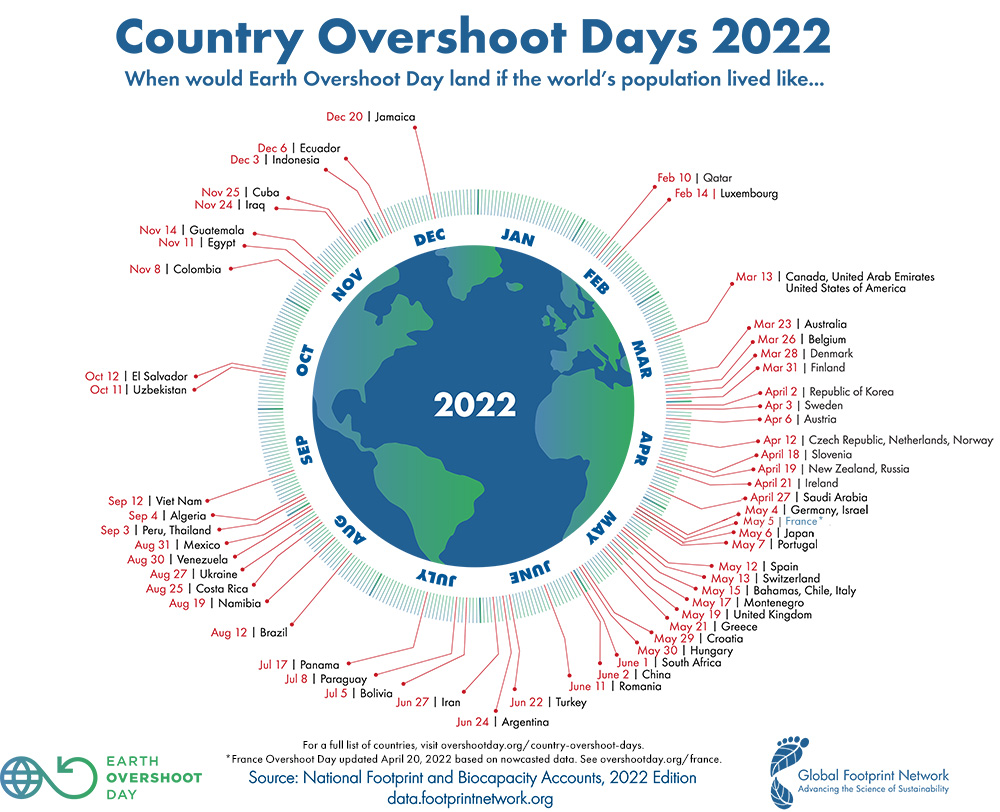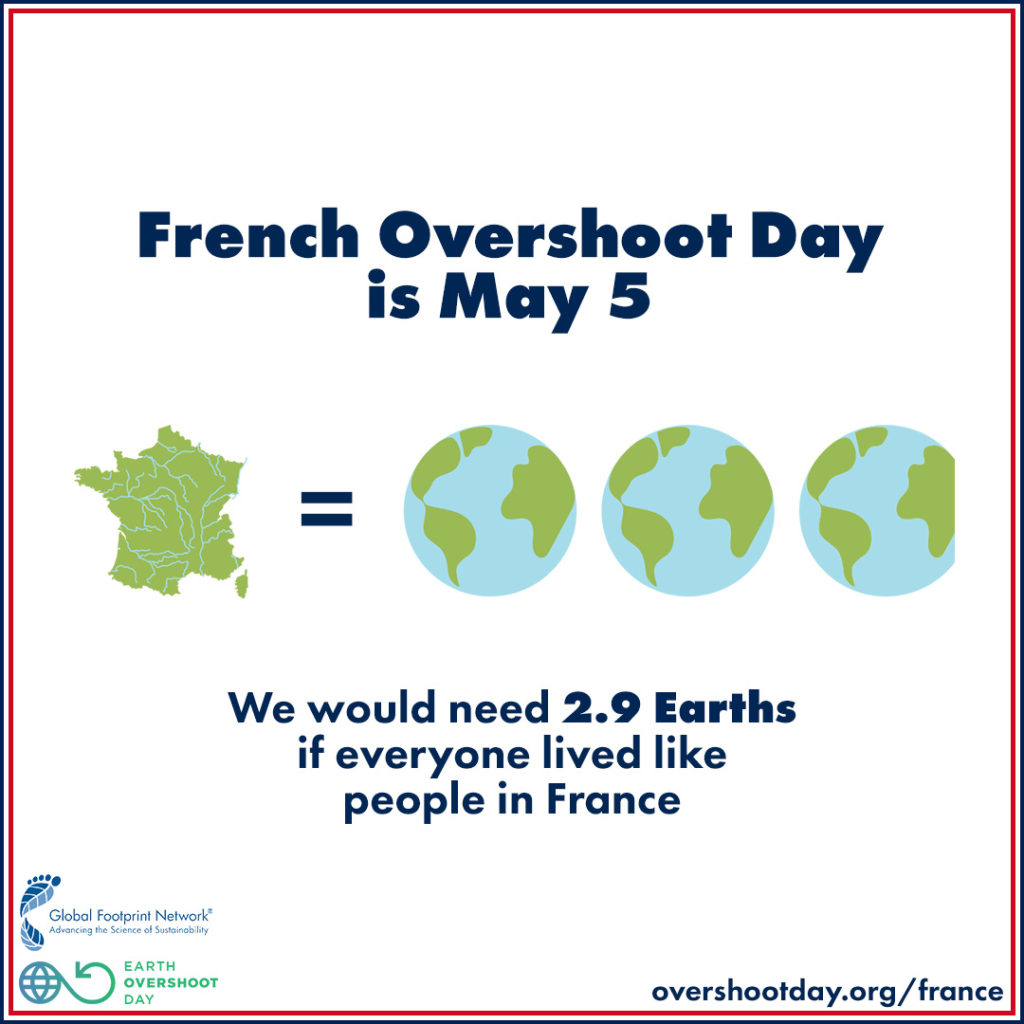French Overshoot Day 2022:
Using 2.9 times more biocapacity than what’s available per person on this planet, the French economy is poorly prepared for the predictable future of climate change and resource constraints, despite many available options.
May 5th is this year’s French Overshoot Day (based on now-casting – see below). This means: If everybody around the world lived like people in France today, Earth Overshoot Day would be May 5th. From January 1st until May 5th, French residents used on average as much from nature as the planet renews in the entire year, per person. This data stems from the National Footprint and Biocapacity Accounts published by the Footprint Data Foundation, York University, and Global Footprint Network.
The war in Ukraine has made obvious that this resource imbalance is becoming a growing political and economic risk for countries, cities and companies. This risk keeps growing as ecological overshoot is prolonged. To succeed, resource imbalance needs to be rectified by thoughtful design, rather than letting thoughtless disaster do the work.
If everybody lived like the French, it would take 2.9 Earths to support all people. In spite of the significant size of France’s biocapacity, it still takes 1.9 Frances to regenerate what French residents currently demand.
French Now-Casting for 2022
Typically, country overshoot days are based on the latest year in the latest edition of the National Footprint and Biocapacity Accounts. For the 2022 edition, the latest data year, based on UN datasets, is 2018. For estimates of more recent biocapacity and Footprint numbers, additional data is needed, if possible from official national statistics or other reliable sources such as peer reviewed data. This data, combined with extrapolation methods then allows to estimate more recent results. This process is called now-casting.
Global Footprint Network has now-casted results for specific countries in collaboration with institutions in these countries. These now-casts build on a combination of historic trends and recent data. But they are not complete biophysical accounts based on official data, and therefore must be treated with the same caution as a forecasting model. They are preliminary estimates, and therefore they may differ from forthcoming official results. Official results for the year 2022 will likely be published in the 2026 edition of the National Footprint and Biocapacity Accounts assuming that the time lag in the UN reporting process remains the same. For a more detailed explanation of now-casting, consult the 2021 global estimates report here.
This year, we worked closely with WWF-France and their team of researchers to produce now-casted results for France. We found that in the last four years, France’s Footprint slightly increased, while the biocapacity per person worldwide also decreased. As a net-result, the now-cast revealed that France’s Overshoot Day in 2022 falls 6 days earlier than it did in 2018.
Over the next 5 years, it is possible to move back the overshoot day by 25 days
In 2022, it has taken France only 4 months to consume all that nature is capable of regenerating in one year. WWF-France notes that all the presidents of the Fifth Republic have allowed the country’s ecological deficit to expand. On average, between 1981 and 2007, overshoot day moved up 10 days during each term.
 WWF-France, with the support of Global Footprint Network and other partners, studied three scenarios. The WWF scenario, called “ecological planning” and which WWF recommends to the government, shows a way to move the date as it has never been moved back in one mandate: from 5 May (in 2022) to 30 May (in 2027), a gain of 25 days.
WWF-France, with the support of Global Footprint Network and other partners, studied three scenarios. The WWF scenario, called “ecological planning” and which WWF recommends to the government, shows a way to move the date as it has never been moved back in one mandate: from 5 May (in 2022) to 30 May (in 2027), a gain of 25 days.
Not only is this much better than anything we have seen in the past. But it is also much better than if the President simply implements the announcements already underway. That scenario called “commitments already made” shows that if the new government stays on track, overshoot day would only move back 3 days from May 5 (in 2022) to May 8 (in 2027).
Moving back the exceedance day would also save at least 28,000 human lives from fine particle air pollution by 2027 and support more than 1.2 million jobs through investments in the ecological transition.
WWF-France’s press release – May 5, 2022 (in French)


